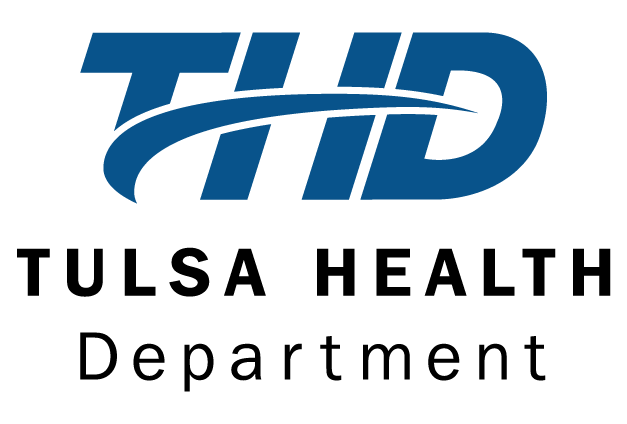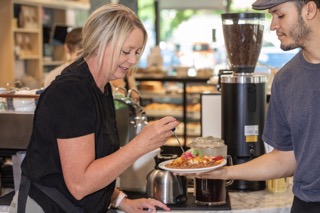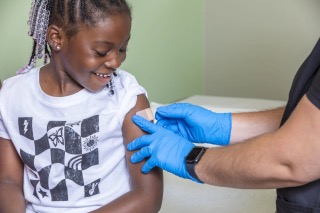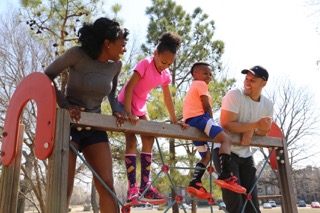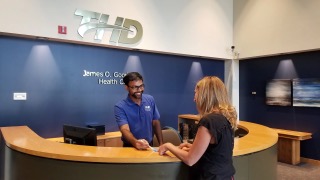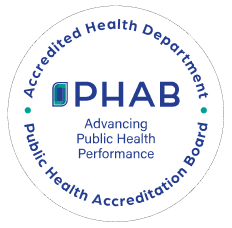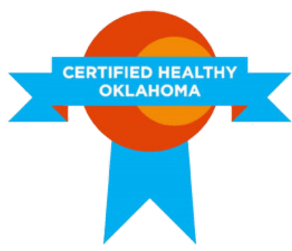TULSA, OK – [December 21, 2020] – The Tulsa Health Department continues to see an increase in COVID-19-related cases, hospitalizations and would like to remind residents the safest way to celebrate the winter holidays is to celebrate at home with people who live with you. Gatherings with family and friends who do not live with you can increase the chances of getting or spreading COVID-19 or the flu.
“Upcoming holiday celebrations will need to continue to be different this year to prevent the spread of COVID-19,” said THD Executive Director, Dr. Bruce Dart. “Avoid activities that are higher risk for spread. Consider fun alternatives that pose lower risk of spreading COVID-19. We know it’s important to continue with traditions. If you can, modify those to keep everyone in your family as safe as possible.”
More Tulsa County residents tested positive in November than any other month, with more than 10,000 cases reported in November. After the first case was announced in our community, it took just under 6 months to reach 10,000 cases. What took 6 months, now only takes less than 1 month. COVID-19 is currently the 5th leading cause of death for Tulsa County residents when compared to the 2018 top causes of death. This has public health officials concerned since this is based on less than 12-months’ worth of COVID death data, so this will likely be higher.
“This virus is very real. If trends continue, it is on track to be the #4 cause of death before the end of the year. It is imperative that we take an effective, fact-based approach to stopping this pandemic now,” said Dart. “The three W’s – wearing a mask, watching your distance and washing your hands – continue to remain paramount to keep ourselves and those we care about safe and around for many more holidays to come.
THD encourages Tulsa County residents and visitors to continue to follow public health guidance to prevent the spread of COVID-19 in our community when attending gatherings of any size. Avoid gathering in groups of more than 10 people, because it is difficult to maintain social distancing in larger groups. Everyone is advised to practice personal responsibility at gatherings by wearing a mask and practice social distancing by remaining 6 feet away from other people who live outside the home. Wash your hands often with soap and water for at least 20 seconds especially after you have been in a public place, or after blowing your nose, coughing, or sneezing. If soap and water are not readily available, use a hand sanitizer that contains at least 60% alcohol. Further guidance is available from the CDC.
The risk of COVID-19 spreading at events and gatherings increases as follows:
Lowest risk: Virtual-only activities, events, and gatherings.
More risk: Smaller outdoor and in-person gatherings in which individuals from different households remain spaced at least 6 feet apart, wear masks, do not share objects, and come from the same local area (e.g., community, town, city or county).
Higher risk: Medium-sized in-person gatherings that are adapted to allow individuals to remain spaced at least 6 feet apart and with attendees coming from outside the local area.
Highest risk: Large in-person gatherings where it is difficult for individuals to remain spaced at least 6 feet apart and attendees travel from outside the local area.
According to the CDC, the virus that causes COVID-19 is spreading very easily and sustainably between people. COVID-19 is thought to be mostly spread by respiratory droplets released when people talk, cough or sneeze. It is thought that the virus may also spread to hands from a contaminated surface and then to the nose, mouth or eye, causing infection. Some people without symptoms may be able to spread the virus. Anyone who is sick with COVID-19 or has symptoms of COVID-19 should stay home and contact their health care provider.
If hosting a gathering, ensure that hand sanitizer, tissues, trash baskets, disposable facemasks and cleaners and disinfectants are available to guests. Clean frequently touched surfaces and objects with detergent and water prior to disinfection, especially surfaces that are visibly dirty. It’s important to clean and disinfect these frequently touched services regularly throughout the day. Remind guests that if they are feeling under the weather to stay home.
“Choosing safe ways to celebrate this year will help ensure many more happy holidays with your family in the future,” added Dart. “I am excited that a safe and effective vaccine is here, and we have started vaccinating those identified in the Phase 1 in the State of Oklahoma plan, but it will be critical to continue to follow the fact-based prevention measures to stop this pandemic.”
If you participated in higher risk activities or think that you may have been exposed during your celebration, take extra precautions (in addition the ones listed above) for 14 days after the event to protect others:
Stay home as much as possible.
Avoid being around people at increased risk for severe illness from COVID-19.
Consider getting tested for COVID-19 5-7 days following the event or potential exposure.
Quarantine and isolation also remain critical to slowing the spread of COVID-19. Completing the entire duration of your quarantine and isolation is vitally important.
Our public health professionals can talk you through your situation to determine the timeline for your quarantine or isolation. Call the Tulsa Health Department at 918-582-9355 to speak a professional.
Getting a flu vaccine is also an essential part of protecting your health and your family’s health this season as well as lessening the strain on health care systems.
The Tulsa Health Department continues to offer specimen collection for COVID-19 testing by appointment only. Call 918-582-9355 to speak to a public health professional. For more information, please visit www.tulsa-health.org/COVID19.
# # #
